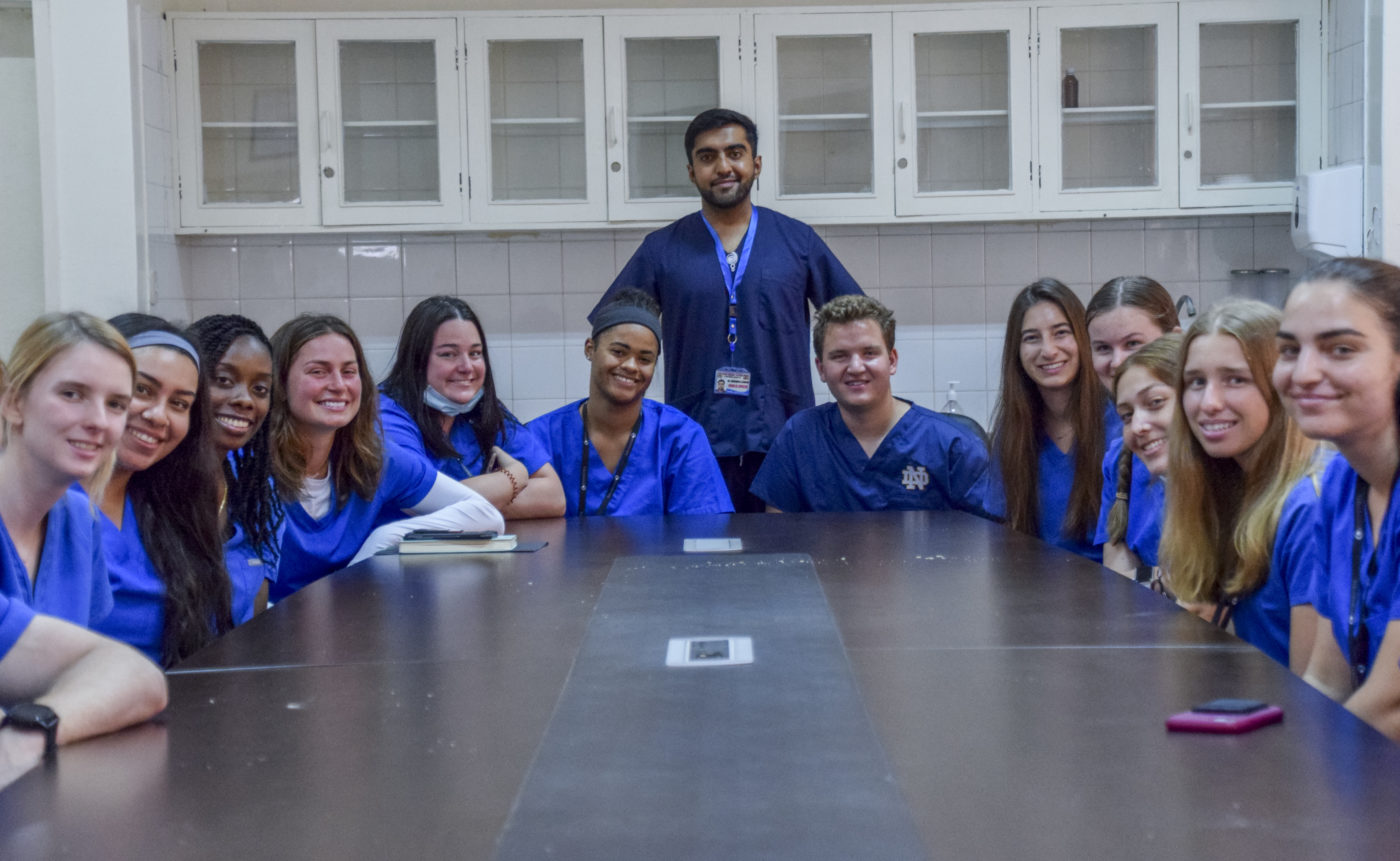If you’re wondering, “what bachelor’s degree do I need to be a physician assistant,” you’re in the right place. Today we’re discussing your PA major and physician assistant internships. It might surprise you to learn that your physician assistant major isn’t as important as you might think it is.
Being a pre-PA student is much like being a pre-med student. You’re taking classes to prepare for a career in healthcare. You’ll take many of the same classes as you would to prep for med school. You’ll apply to PA programs using the CASPA application service, which is the PA version of the MD’s AMCAS application. You’ll also need to maintain your GPA and volunteer for healthcare experiences.
Prepare for Your Physician Assistant Major Early
You should begin preparing for your career as a PA as soon as you know you want to be one. That will allow you to set yourself up for success. You can still have a successful career if you decide to become a PA later on, but you might have to take some extra classes for your physician assistant major.
For example, if you already have your bachelor’s degree but haven’t taken the necessary prerequisite courses, you’ll need to take post-baccalaureate classes to get caught up/be prepared. A PA program won’t accept you without the right prerequisites because they prepare you for the program.
Without those courses, you might fail, and PA programs don’t want any students failing or dropping out of their programs. It costs them time and money, and it’s not great for their stats. It would also be really upsetting for you if you failed because you weren’t prepared with the right prerequisite courses.
If you didn’t take any science-related courses for your undergraduate degree, you might need a second bachelor’s degree or an associate’s degree in science. Many students end up taking this route, so don’t feel bad if this is you! However, you might be able to just take a few classes to fulfill those requirements. It’s if you need a ton of science credits when you might consider a second degree.
Your local community college is a great option for taking the prerequisites you need to get into PA school. Over 25% of students decide to become a PA later on.
Choosing Your Physician Assistant Major
“So,” you ask, “what bachelor’s degree do I need to be a physician assistant?” While you must earn your bachelor’s degree before being eligible for a PA program, what you study is up to you. Having a bachelor’s degree is a requirement separate from the prerequisite courses. You need that level of education, but what you study is your choice. Many pre-PA students love science and major in a science-related field like Biology or Chemistry.
But that isn’t always the case. Some pre-PA students choose a different major that interests them. The important thing is, if you’re a pre-PA student, you’ll want to take your prerequisites so you don’t have to take extra classes to get into PA school. You should only need to take extra classes if you make that decision later on. It will save you time and money!
So, how do you go about picking a non-science-related major when you want to be a PA? It’s simple. You’ll take the required courses to earn your degree in your major and then use all your elective credits to take science-related courses. Most universities will allow you to take more than 120 credits for your degree, making this process even easier.
What PA Programs Look For
PA programs don’t admit you based on your undergraduate majors. Instead, they look at all the courses you’ve taken, your GPA, volunteer hours and experiences, and your application essays. They look at you as a whole candidate, not just as a “Biology major” or “History major.” You’d want to avoid programs that look at you solely for what you majored in.
Pre-PA Internship Opportunities
It’s very important to keep your eyes open for PA internship opportunities as physician assistant internships make up a major part of your experience. You can find internship opportunities through word of mouth, professional connections and research.
You could intern at a local doctor’s office. Or, if you’re feeling adventurous, you might consider going abroad and shadowing a doctor on the other side of the world. In short, the more experience you have, the better.
PA programs are looking for well-rounded students who have experience working both directly and indirectly with patients. So, the more hours you accumulate in this area, the better.
Considerations for Your Physician Assistant Major
What Are You Good At? What Are You Best At?
While you can pick anything for your physician assistant major, you’ll want to choose carefully. Why? Because you need good grades. If you genuinely love Biology and are good at it, it’s a great choice.
But if you’ve always been a straight B student and test better in other subjects, consider majoring in one of those subjects. Getting a mixture of As and Bs is better than only Bs since your GPA will be higher.
Most PA programs will analyze your total GPA and your science GPA, so having a higher total GPA can benefit you.
How Much Time Do You Have?
You might be lucky enough to just be a full-time student and not have to worry about working. That means you can devote all your time to school. You’ll have a significant advantage over students who have to work, too.
But don’t worry if you are one of those students who need to work your way through school. Thousands of students have been in your position and have successfully completed a PA program before going on to have rewarding careers.
If you need to work, pick a physician assistant major that won’t take up a ton of time. For example, if you work at a smoothie place for 20 hours every week, don’t become an English major enrolled in classes that require a ton of reading and writing. Not only will you lose sleep trying to keep up with everything, but your grades will suffer if you run out of time to complete assignments.
So, what should you major in? Look at majors that don’t require a ton of reading or writing. They’re the most time-consuming. Find majors that require you to complete projects instead. They still take time but not as much.
One of our best recommendations is to only take one difficult class per semester if you can help it. Does your major require an English literature class? Don’t take it the same semester as your writing class. Try a photography or math class instead. Fill up your schedule with a combination of easy, moderate, and difficult classes so you can maintain your grades.
Rise to the Challenge
While following these tips and tricks will help you earn good grades, it’s no secret that becoming a PA will challenge you. No matter what you major in, you’ll have hard classes to take that will challenge you. Don’t be afraid of this! Rise to the challenge. It will help you reach your full potential.
Also, getting Bs is not the end of the world. You could be an excellent student and understand the material well but not test well. Don’t overthink it. PA programs consider more than just your grades!
How International Medical Aid Can Help
The road to becoming a physician assistant can seem daunting, especially if you aren’t sure where to start. But we have good news! International Medical Aid has guided thousands of students down this road, and we can help you, too!
Whether you have questions about programs, your CASPA application, secondary essays or anything else, we can help you through the process. Please don’t hesitate to reach out to us. Becoming a PA is a rewarding career that will allow you to help countless people live healthier lives. You’re starting on an amazing journey!
While you’re here, we recommend checking out these articles on what it’s like to be a PA and how to prepare for your education and career.
Helpful Articles
- How To Get Patient care Hours for PA School (Without A Certification)
- How To Find Pre-Physician Assistant Internships
- 8 Reasons Why Internships Are A Must For Physician Assistants
- Best Pre-Physician Assistant Majors
- Physician Assistant to Associate: What You Need To Know
- Nurse Practitioner vs. Physician Assistant: What’s The Difference?
We also recommend checking out our medical school guides, as many of them include PA programs that might be of interest to you.
Medical School Guides
- University of Maryland School of Medicine
- Case Western Medical School
- University of North Carolina Medical School
- University of Florida Medical School
- Emory University School of Medicine
- Boston University College of Medicine
- California University of Science and Medicine
- UC San Diego Medical School
- California Northstate University College of Medicine
- Touro University of California
- CHSU College of Osteopathic Medicine
- UC Davis School of Medicine
- Harvard Medical School
- UC Riverside School of Medicine
- USC Keck School of Medicine
- UT Southwestern Medical School
- Long School of Medicine at UT Health San Antonio
- University of the Incarnate Word School of Osteopathic Medicine
- UT Austin’s Dell Medical School
- UTMB School of Medicine
- McGovern Medical School at UT Health
- Johns Hopkins School of Medicine
- McGovern Medical School at UT Health
- The University of Texas Rio Grande Valley School of Medicine
- UNT Texas College of Osteopathic Medicine
- University of Houston College of Medicine
- Texas A&M College of Medicine
- Johns Hopkins Medical School
- Baylor College of Medicine
- George Washington University School of Medicine
- Vanderbilt University School of Medicine
- St. George’s University School of Medicine
- Lake Erie College of Osteopathic Medicine (in Pennsylvania)
- Sidney Kimmel Medical College at Thomas Jefferson University
- Wake Forest University School of Medicine
- Western University of Health Sciences (in California)
- Drexel University College of Medicine
- Stritch School of Medicine at Loyola University Chicago
- Georgetown University School of Medicine
- Yale School of Medicine
- Perelman School of Medicine
- UCLA Medical School
- NYU Medical School
- Washington University School of Medicine
- Brown Medical School
We wish you the best of luck on your journey! And remember that International Medical Aid is here to help.




